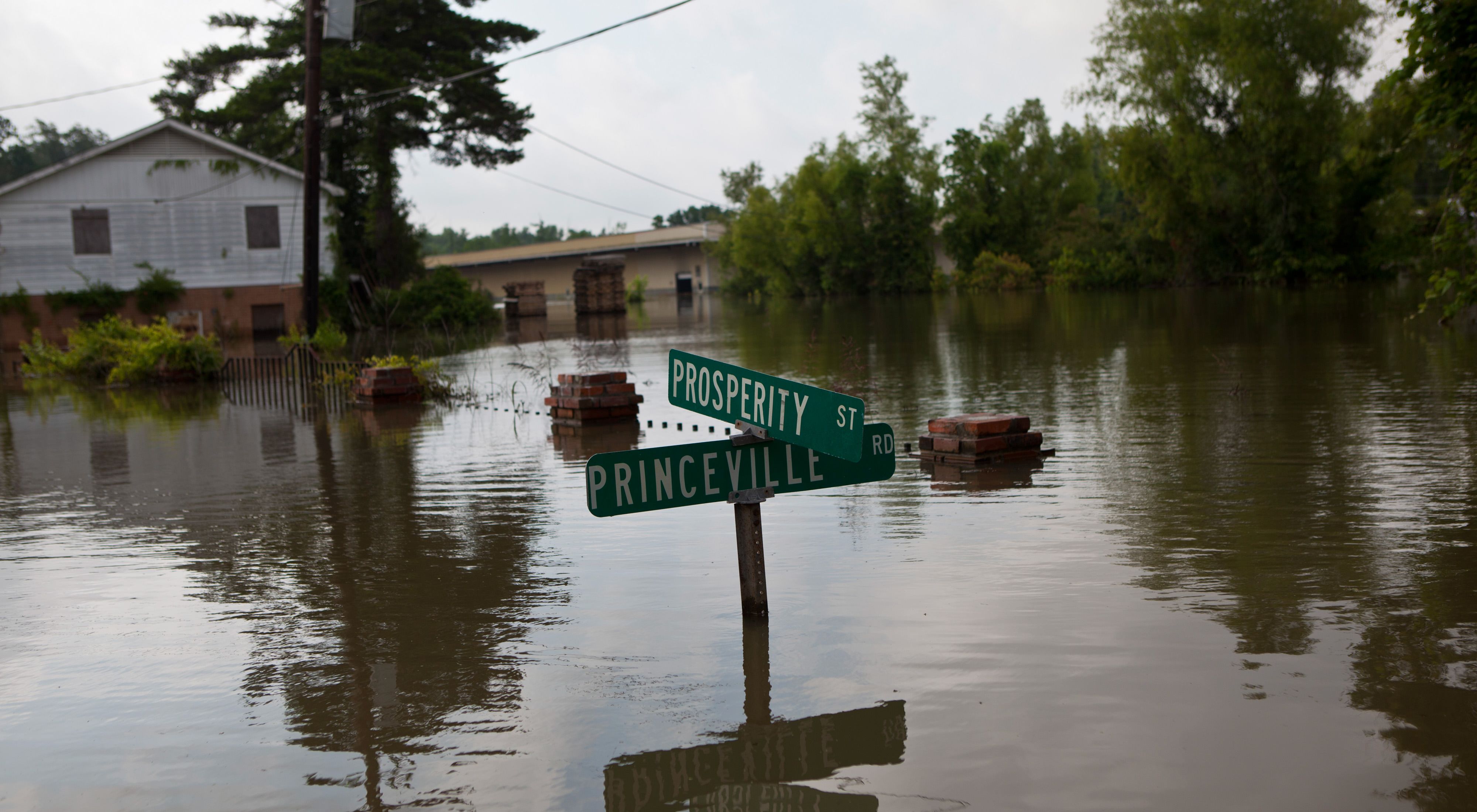Yazoo Basin Backwater Area
A public listening and comment session advanced conversations about worsening flood conditions impacting people and nature
Media Contacts
-
Becky Russell
Phone: 601-397-2134
Email: becky@russellmediaconsultants.com
The Nature Conservancy attended a public listening and comment session hosted by the U.S. Army Corps of Engineers, U.S. Environmental Protection Agency and U.S. Fish and Wildlife Service in Vicksburg, MS. The sessions took place in response to the agencies' announcement of a recommended preferred approach to water management in the Yazoo Backwater Area (YBA). This announcement and associated public sessions are a continuation of the process the agencies committed to in 2022 in order to provide a solution to the chronic and worsening flood conditions that have adversely impacted both people and nature in the YBA over the past several years.
The historic floods of 2019 and 2020 resulted in a loss of life, hundreds of millions of dollars in damages, significant impacts to wildlife, flooding of over 550,000 acres and nearly 700 homes. The intensity, duration and frequency of rain events are placing a tremendous burden on the basin’s natural resources, its residents and local economies. The frequency by which similar events are projected to occur in the coming years reflects that the status quo is no longer a viable option. This is why TNC is encouraged by the process that is being utilized by these agencies as they work collaboratively to find a solution for long-term water management inside the YBA.
The current process has brought the whole body of government to bear on the issue, evident by the numerous state and federal agencies represented and available during the public sessions last week. The recommended preferred approach has sought out a solution that incorporates and respects the thoughts, concerns and experiences of the YBA residents while staying in compliance with the Clean Water Act, National Environmental Policy Act, and all other applicable laws and regulations. The approach seeks to deploy a suite of complementary structural and non-structural options designed to avoid any wetland to non-wetland conversions while providing flood risk reduction for communities and the local economy. Understanding this, we commend the agencies for seeking a long-term solution to water management in the YBA that balances the needs of both people and nature.
The Nature Conservancy has worked with private and public partners for more than 40 years to conserve and restore wetlands in the Mississippi Delta. We recognize that many things have changed since Congress authorized the current system of flood control measures along the Mississippi River and its tributaries in 1941, and we feel these changes desperately warrant a more effective long-term approach to water management across these regions. We remain committed to such efforts and are available to offer our resources and assistance to inform the overall approach. We look forward to the opportunity for further engagement on this issue following the completion of all necessary regulatory and environmental reviews of the proposed Recommended Preferred Approach for The Yazoo Backwater Area.
The Nature Conservancy is a global conservation organization dedicated to conserving the lands and waters on which all life depends. Guided by science, we create innovative, on-the-ground solutions to our world’s toughest challenges so that nature and people can thrive together. We are tackling climate change, conserving lands, waters and oceans at an unprecedented scale, providing food and water sustainably and helping make cities more sustainable. The Nature Conservancy is working to make a lasting difference around the world in 81 countries and territories (40 by direct conservation impact and 41 through partners) through a collaborative approach that engages local communities, governments, the private sector, and other partners. To learn more, visit nature.org or follow @nature_press on X.
